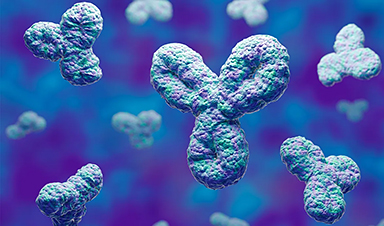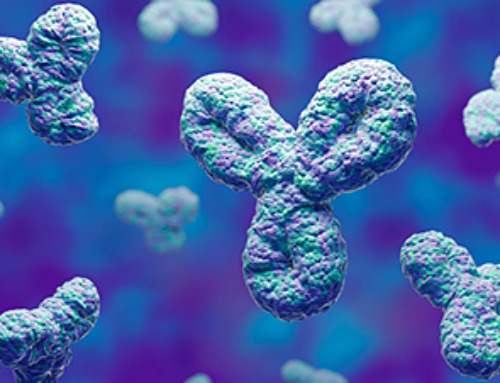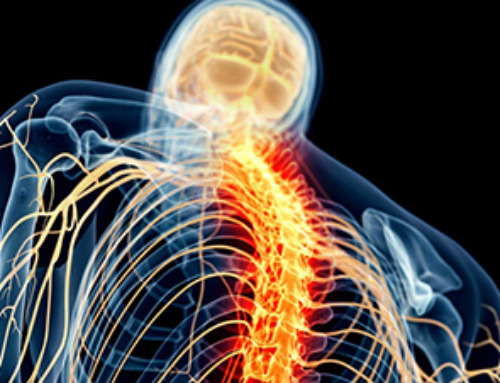A new study indicates that face masks did not significantly lower Covid-19 infection risk after the initial Omicron wave, highlighting the need for adaptable strategies and further research as risk factors evolve.
New findings from the University of East Anglia suggest that wearing face masks did not reduce the risk of Covid infection after the initial rise of the Omicron variant. An analysis of official data indicated that the risk factors for infection changed notably when the dominant Covid variant in the UK shifted from Delta to Omicron in December 2021.
These included wearing a mask, a history of foreign travel, household size, whether people were working or retired, and contact with children or over-70s.
Lead author Professor Paul Hunter, of Norwich Medical School at the University of East Anglia (UEA), said: “Early in the pandemic there were many studies published looking at risk factors for catching Covid, but far fewer studies after the first year or so. Our research shows that there were changes in some risk factors around the time that the Omicron BA.2 variant became dominant.”
Co-author Dr. Julii Brainard, of UEA’s Norwich Medical School, said: “This isn’t totally surprising because laboratory evidence suggests that the Omicron variant was better able to infect the cells lining the upper respiratory tract than previous variants and so be more transmissible. Management of infection risk needs to be agile, adapting to epidemic development and better-quality information when it emerges. To prevent infections we need to have a good view of which factors might be most or least relevant. If those factors can change, we need to be alert to that happening.”
Methodology and Key Findings from the Data
The researchers analyzed data available from the Office for National Statistics (ONS) Covid survey in England, which compared infection rates with an ongoing household survey of the population to estimate how many people had infections. From November 2021 to May 2022, the ONS also asked people questions about their circumstances and habits to see if those factors could be linked to the risk of positivity.
Professor Hunter added: “We used this dataset to look for constancy or change in the importance and direction of potential risk factors for testing positive. We applied a statistical method called meta-regression to do this.”
The study found that changes to risk factors included:
- In November 2021, always wearing face masks at work, school, or in enclosed spaces was associated with a reduced risk of being infected in both adults and children, but after the first Omicron wave, it was not.
- Living in a house with five or more people was a risk at the beginning but by the end of the study period, people in larger households (four and above) had negligibly greater risk than people living in singleton households.
- Early overseas travel was not associated with increased risk, but later on, it was.
- Working in health or social care or in contact with others, was often found to be important in the first year of the pandemic, but was not associated with an overall higher or changing risk of infection in the study period.
- Being of ethnic minority was strongly associated with increased risk in the first few months of the UK epidemic, but was associated with lower risk and no significant trend change during the study’s full monitoring period.
- Being retired was associated with reduced risk compared to those in work overall, but any protective effect had disappeared by February 27, 2022, which coincided with the start of the second Omicron wave.
- By the end of February 2022, it became apparent that there was a decrease in risk for adults living with children aged 16 or under.
- People under 70 who lived with someone aged 70 or older initially had a lower likelihood of testing positive, but this protective effect diminished by about mid-February, 2022.
The researchers said the balance of evidence is that wearing face coverings reduces transmission of respiratory infections in community settings and reduces transmission of Covid-19. The question, however, is by how much.
Conclusion and Implications for Future Research
A systematic review of pre-pandemic evidence and analysis of original survey data during the COVID-19 pandemic both indicated that mask-wearing could or did reduce transmission of SARS-CoV-2 by about 19pc. But these conclusions were derived mainly from data prior to the emergence of Omicron variants.
This latest research found that prior to Omicron BA.2, never wearing a mask was associated with an increased risk of around 30pc in adults and 10pc in children. But by the second Omicron wave (mid to late February 2022 onwards) there was no protective effect from mask-wearing in adults and possibly an increased risk of infection in children.
Professor Paul Hunter commented: “It should not be a surprise that risk factors change during a pandemic due to a highly infectious disease with a short duration of immunity like Covid. So-called SEIRS (Susceptible, Exposed, Infected, Recovered, Susceptible) models of epidemics predict that as such an infection becomes endemic risk factors that powered the epidemic in its early stages become less important and the rate at which people lose immunity becomes more important in driving infection rates.”
Dr Brainard added: “A lot of potential risk factors for catching Covid didn’t change during this period, and that’s important to know too. We offer some possible explanations for why the changes may have happened, but we would need more focused research to understand for sure why there were changes in some risk factors.”
Reference: “Changing risk factors for developing SARS-CoV-2 infection from Delta to Omicron” by Paul R. Hunter and Julii Brainard, 15 May 2024, PLOS ONE.
DOI: 10.1371/journal.pone.0299714
The study was funded by the National Institute for Health and Care Research (NIHR) Health Protection Research Unit in Emergency Preparedness and Response at King’s College London in partnership with the UK Health Security Agency (UKHSA) and in collaboration with the University of East Anglia.
News
Specially engineered antibody delivers RNA therapy to treatment-resistant tumors
Elias Quijano, PhD; Diana Martinez-Saucedo, PhD; Zaira Ianniello, PhD; and Natasha Pinto-Medici, PhD, there are 25 other contributors, most from Yale's Department of Therapeutic Radiology and from the departments of genetics, molecular biophysics and [...]
Vaccinated women face fewer cervical cancer risks
New data from Denmark shows the HPV vaccine’s powerful long-term impact, while also revealing why cervical cancer screening is still essential. A Danish study published in the journal Eurosurveillance reports that women who received the human [...]
3D-printed implant offers a potential new route to repair spinal cord injuries
A research team at RCSI University of Medicine and Health Sciences has developed a 3-D printed implant to deliver electrical stimulation to injured areas of the spinal cord, offering a potential new route to [...]
Nanocrystals Carrying Radioisotopes Offer New Hope for Cancer Treatment
The Science Scientists have developed tiny nanocrystal particles made up of isotopes of the elements lanthanum, vanadium, and oxygen for use in treating cancer. These crystals are smaller than many microbes and can carry isotopes of [...]
New Once-a-Week Shot Promises Life-Changing Relief for Parkinson’s Patients
A once-a-week shot from Australian scientists could spare people with Parkinson’s the grind of taking pills several times a day. The tiny, biodegradable gel sits under the skin and releases steady doses of two [...]
Weekly injectable drug offers hope for Parkinson’s patients
A new weekly injectable drug could transform the lives of more than eight million people living with Parkinson's disease, potentially replacing the need for multiple daily tablets. Scientists from the University of South Australia [...]
Most Plastic in the Ocean Is Invisible—And Deadly
Nanoplastics—particles smaller than a human hair—can pass through cell walls and enter the food web. New research suggest 27 million metric tons of nanoplastics are spread across just the top layer of the North [...]
Repurposed drugs could calm the immune system’s response to nanomedicine
An international study led by researchers at the University of Colorado Anschutz Medical Campus has identified a promising strategy to enhance the safety of nanomedicines, advanced therapies often used in cancer and vaccine treatments, [...]
Nano-Enhanced Hydrogel Strategies for Cartilage Repair
A recent article in Engineering describes the development of a protein-based nanocomposite hydrogel designed to deliver two therapeutic agents—dexamethasone (Dex) and kartogenin (KGN)—to support cartilage repair. The hydrogel is engineered to modulate immune responses and promote [...]
New Cancer Drug Blocks Tumors Without Debilitating Side Effects
A new drug targets RAS-PI3Kα pathways without harmful side effects. It was developed using high-performance computing and AI. A new cancer drug candidate, developed through a collaboration between Lawrence Livermore National Laboratory (LLNL), BridgeBio Oncology [...]
Scientists Are Pretty Close to Replicating the First Thing That Ever Lived
For 400 million years, a leading hypothesis claims, Earth was an “RNA World,” meaning that life must’ve first replicated from RNA before the arrival of proteins and DNA. Unfortunately, scientists have failed to find [...]
Why ‘Peniaphobia’ Is Exploding Among Young People (And Why We Should Be Concerned)
An insidious illness is taking hold among a growing proportion of young people. Little known to the general public, peniaphobia—the fear of becoming poor—is gaining ground among teens and young adults. Discover the causes [...]
Team finds flawed data in recent study relevant to coronavirus antiviral development
The COVID pandemic illustrated how urgently we need antiviral medications capable of treating coronavirus infections. To aid this effort, researchers quickly homed in on part of SARS-CoV-2's molecular structure known as the NiRAN domain—an [...]
Drug-Coated Neural Implants Reduce Immune Rejection
Summary: A new study shows that coating neural prosthetic implants with the anti-inflammatory drug dexamethasone helps reduce the body’s immune response and scar tissue formation. This strategy enhances the long-term performance and stability of electrodes [...]
Scientists discover cancer-fighting bacteria that ‘soak up’ forever chemicals in the body
A family of healthy bacteria may help 'soak up' toxic forever chemicals in the body, warding off their cancerous effects. Forever chemicals, also known as PFAS (per- and polyfluoroalkyl substances), are toxic chemicals that [...]
Johns Hopkins Researchers Uncover a New Way To Kill Cancer Cells
A new study reveals that blocking ribosomal RNA production rewires cancer cell behavior and could help treat genetically unstable tumors. Researchers at the Johns Hopkins Kimmel Cancer Center and the Department of Radiation Oncology and Molecular [...]





















